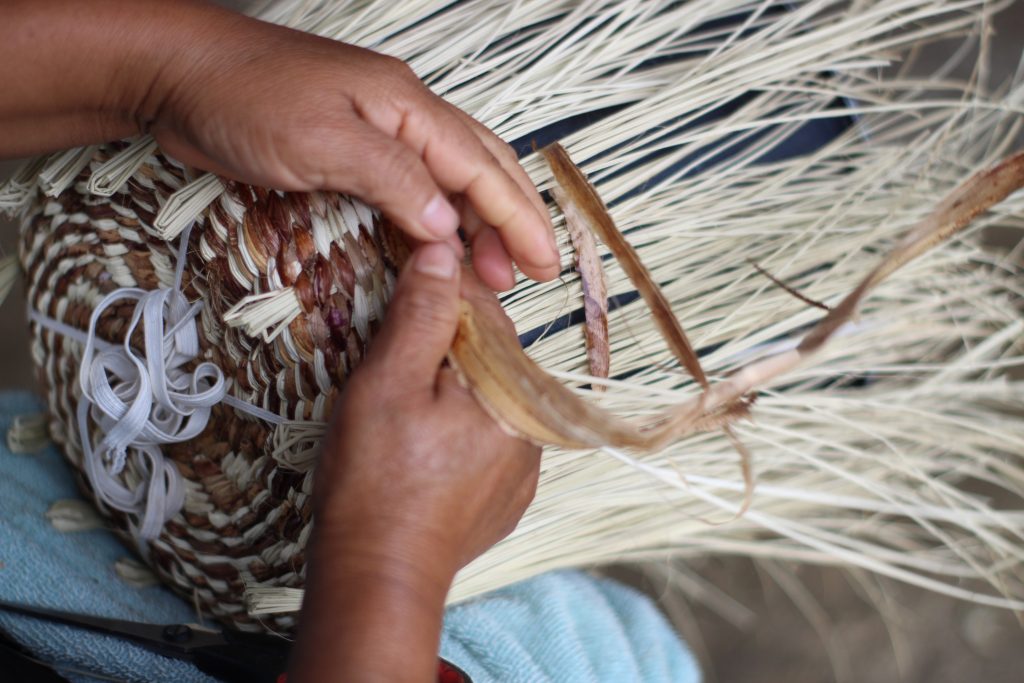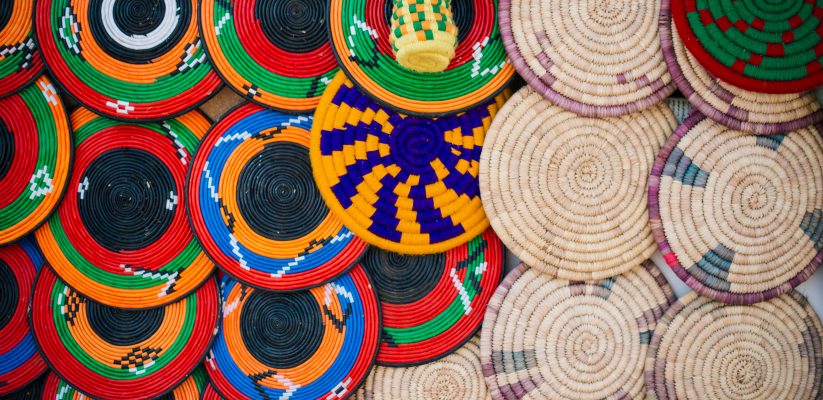Author: Alessandra Costagliola, Doctoral Researcher, CAMRI, University of Westminster
In 2022, the global handicrafts market became a $752.2 billion dollar industry. The industry has benefited from travel, tourism, and the growth of e-commerce, where these unique, often handmade cultural goods can reach a wide audience across the globe. However, getting these products online isn’t always easy for places around the world where internet access and literacy is limited. This is often where Western companies and non-governmental organizations (NGOs) step in.
Conscious capitalist brands like Akola Jewelry, Kazi Goods, and Indego Africa employ women in countries including Ghana, Rwanda, Uganda, Kenya and Burundi to produce handicraft goods that they market and sell to a Western audience. These brands are referred to as ‘consciously capitalist’ or ‘ethically capitalist’ due to their prioritization of ethical labour practices and fair wages, where the production of the good is transparently presented online by displaying the producers engaged in their work. Often, these organizations also supply other forms of training opportunities for their artisans including financial literacy training.
The transparency of these brands’ production practices is central to promoting themselves as ethical, sustainable brands that support rural communities in some of the most remote locations around the globe. For consumers, this means that their purchase of the brand’s goods supports these tenants as well as the artisans they employ. On the surface, this business model can appear unflawed, but transparency doesn’t always tell the full story.
The “Happy” Producer
Handicraft production is a highly gendered industry, with 80% of artisans being women. In promoting their ethical labour practices, conscious capitalist brands often centralize their female artisan producers in their marketing collateral, particularly on social media. The images promoted by these brands depict artisans directly engaged in labour, happily producing the handicraft good for the West’s consumption. This depiction has been critiqued for appearing emancipatory, but simultaneously perpetuating an imperialist gaze on the producer.
In addition to using imagery that depicts women in labour, conscious capitalist brands often use language of empowerment and storytelling to inform the consumer on how their purchase contributes to the economic independence of the artisan. Hashtags including #empowerment, #girlboss, #bossladies, and #girlpower are often used in these images to advance a palatable form of feminism, referred to as “girl boss feminism”, which links hard work and self-determination with women’s success. For Western consumers, this helps shape the impression that their purchase is not a handout, but rather, an equal exchange that supports the artisan’s business and economic well-being. This approach not only simplifies feminism as being directly connected to the capitalist market, but also fails to account for the nuance of culture, race, and gender in local contexts.
Employing Mothers
Over the last few decades, international development strategy has shifted to an approach referred to as ‘smart economics’, whereby women are viewed as more economically efficient than their male counterparts. By depicting their artisans alongside their children, conscious capitalist brands draw a connection between their producers and Western female consumers through the shared experienced of the motherhood.
However, this depiction often obscures the role of the father figure. In one image from conscious capitalist jewellery brand, Akola Jewlery, a fatherless family of nine stand outside of a small hut, presumed to be their home. They hold out plastic cups of water to the viewer, as though to thank Western viewers for their access to the water. In the caption, Akola celebrates their role of “caring for thousands of children”, insinuating that Akola has taken on the role of the father figure to help support families where mothers may otherwise be considered “unemployable”.

What’s Really for Sale?
A frequent feature of the marketing imagery used by conscious capitalist brands is cropping the producer’s body so that only her hands are shown in direct contact with the handicraft product. This is a practice referred to as ‘dismemberment’ or ‘fragmentation’ and has been critiqued for romanticising labour and commoditising the body by presenting its individual parts in relation to the product being sold. For conscious capitalist brands, this practice mechanizes the body, where the hands become the machine responsible for producing the handicraft good. The hands become embedded with the goods in these images, in the same way that the sale of product is embedded with the economic empowerment of its producer.
By depicting the handicraft good being created by its producer, the conscious capitalist brands remind the consumer of how the artisan’s empowerment is enabled through their purchase of the good she holds. In this way, the brands not only sell the consumer a physical good, but also sell the idea that their purchase contributes to the economic livelihood of the artisan who made their product.
Conscious capitalist brands are doing something most brands aren’t— prioritizing ethical labour standards. This is something that should be celebrated. However, conscious capitalist brands should also consider how ‘selling ethics’ in the form of marketing imagery that depicts their producers, effectively turns their artisans into the commodities being sold.
Author: Alessandra Costagliola is a third year Doctoral Researcher at University of Westminster’s Communication and Research Institute (CAMRI). She holds an MSc in International Development from University of Edinburgh and a BA in Global Studies from Loyola University Maryland. In addition to her academic research, Alessandra is also a Brand Manager for a leading academic publisher. Her doctoral research explores the intersection between technology, economic development, and advertising in India.
- Obesity as a genotoxic environment - April 28, 2023
- Dalit History Month and its significance - April 20, 2023
- A professor is going to live in an underwater hotel for 100 days – here’s what it might do to his body - April 13, 2023
